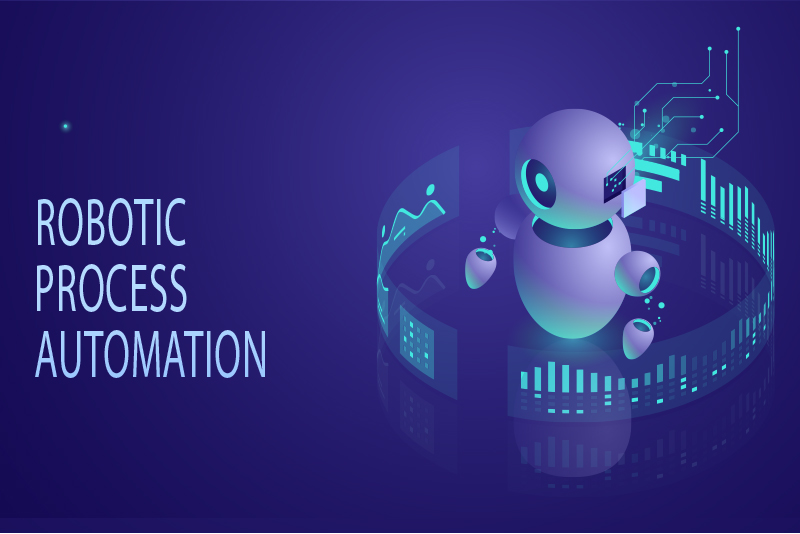Robotic Process Automation (RPA) is an advanced technology that automates repetitive and structured business processes, allowing employees to dedicate their time to more valuable and strategic tasks. RPA is a key component of the automation revolution, which combines various cutting-edge technologies such as AI, machine learning, big data, robotics, and the Internet of Things. This convergence of technologies creates a powerful force driving efficiency, productivity, and innovation across many industries. Today, many businesses are leveraging technologically advanced back office outsourcing services to integrate RPA and other advanced technologies into their workflow. RPA plays a significant role in manufacturing by helping to tackle a variety of crucial processes.
Up to 43% of manufacturers already use robotic process automation, while a further 43% plan to deploy RPA initiatives, according to a report from Impact. Several top organizations in the manufacturing industry have adopted RPA to streamline their operations. Global manufacturing conglomerate Siemens has incorporated RPA into its manufacturing processes for tasks like order processing, data validation, and inventory management, enabling improved accuracy and faster execution. Car giant Toyota has also implemented RPA for processes such as data validation, report generation, and supply chain management. Ford, General Electric (GE), Procter & Gamble (P&G), and Honeywell are other examples of organizations that are leveraging RPA in manufacturing and experiencing streamlined operations and improved data accuracy.
Key Roles of RPA in Manufacturing
RPS is different from the robots commonly used in manufacturing operations, such as articulated robots, SCARA robots, Delta robots, and Cartesian robots. RPA revolves around the utilization of software robots, which are programmed to perform repetitive digital tasks, including data capture and input. Here are 11 top use cases of RPA in the manufacturing industry:
- Data entry and processing: RPA bots can extract data from various sources such as invoices, purchase orders, or production reports, eliminating the need for manual data entry. This reduces errors, improves accuracy, and saves time.
- Inventory management: RPA can automate inventory tracking and management processes, including updating stock levels, generating purchase orders, and monitoring supply chain activities. This helps optimize inventory levels, prevent stockouts, and enhance production planning.
- Production line monitoring: RPA bots can collect real-time data from sensors and machines on the production line, monitoring performance, detecting anomalies, and triggering alerts when issues arise. This enables proactive maintenance, minimizes downtime, and enhances production efficiency.
- Quality control and inspection: RPA can automate quality control processes by analyzing data, comparing measurements, and identifying defects or deviations. This streamlines inspection tasks, improves accuracy, and ensures consistent product quality.
- Supply chain management: RPA bots can automate various supply chain activities such as order processing, vendor management, and logistics coordination. By optimizing these processes, RPA helps improve supply chain visibility, reduce lead times, and enhance overall efficiency.
- Compliance and regulatory tasks: RPA can assist in automating compliance-related tasks such as data validation, documentation, and reporting. This ensures adherence to regulatory requirements, reduces human errors, and simplifies audit processes.
- Workflow automation: RPA can automate manual and paper-based workflows, eliminating paperwork, and accelerating approval processes. This reduces bottlenecks, improves communication, and enhances overall operational efficiency.
Top 5 Benefits of RPA for Manufacturing
RPA focuses on enhancing and complementing existing systems and applications, aiming to improve their functionality and effectiveness. Here are 5 ways RPA benefits manufacturing:
- Saves time: RPA minimizes the time spent on routine activities that are currently performed by humans. By automating non-creative processes, efficiency and speed can be significantly improved. Without the delays associated with time lapses or waiting for approvals, tasks can be completed promptly. Additionally, the availability of automated data facilitates quicker decision-making. For instance, automating inventory management enables real-time visibility into stock availability, ensuring seamless production initiation without any delays.
- Reduces human error rates: Manual processes are prone to human errors, resulting in significant delays and substantial costs for businesses. By automating these processes, the likelihood of errors in document maintenance and task completion is greatly reduced, ensuring a high level of accuracy.
- Improves productivity: Automating processes significantly saves employees’ time and effort. By automating mundane and repetitive tasks, the workforce can redirect their attention to more important responsibilities. This not only enhances job satisfaction but also increases productivity, leading to real-time production improvements for the organization.
- Frees up human resources for higher value tasks: RPA frees up people to engage in higher-value work that currently cannot be executed by robots. This includes resolving intricate customer inquiries and formulating strategic plans that cover the broader vision of the organization.
- Alleviates labor shortages: RPA automation helps alleviate labor shortages and provides a reliable and worthwhile alternative. While implementing RPA technology requires an initial investment, it significantly reduces the need for skilled personnel, saving time, effort, and costs associated with recruitment. By minimizing human dependency through technology, businesses can eliminate delays, enhance operational efficiency, and achieve long-term cost savings.
- Seamless integration: RPA systems have the flexibility to seamlessly integrate with existing systems, facilitating the smooth digital transformation of data from interconnected platforms. Their implementation is straightforward and hassle-free, as they do not require extensive coding or significant system overhauls.
Implementing RPA Successfully
Implementing RPA in an organization within the manufacturing industry requires meticulous planning and execution to ensure a successful deployment. To begin, it is crucial to identify the most suitable processes for automation and clearly define the goals and objectives of RPA implementation. Engaging key stakeholders from different departments is essential for their input and buy-in.
When selecting an RPA tool, carefully evaluate the available options based on factors such as scalability, compatibility, ease of use, vendor support, and cost. Additionally, providing comprehensive training to employees who will be utilizing the RPA system is essential for a smooth transition.
Thoroughly testing the automated processes prior to production deployment is critical to identify and resolve any issues. Monitoring and tracking performance metrics will allow for ongoing assessment and continuous improvement of the RPA implementation.
Implementing RPA with the assistance of an experienced robotic process automation company can greatly enhance the success of the deployment. Their expertise and guidance will help streamline the deployment process and ensure successful integration of RPA technology.
Don’t miss out on the transformative potential of RPA!




